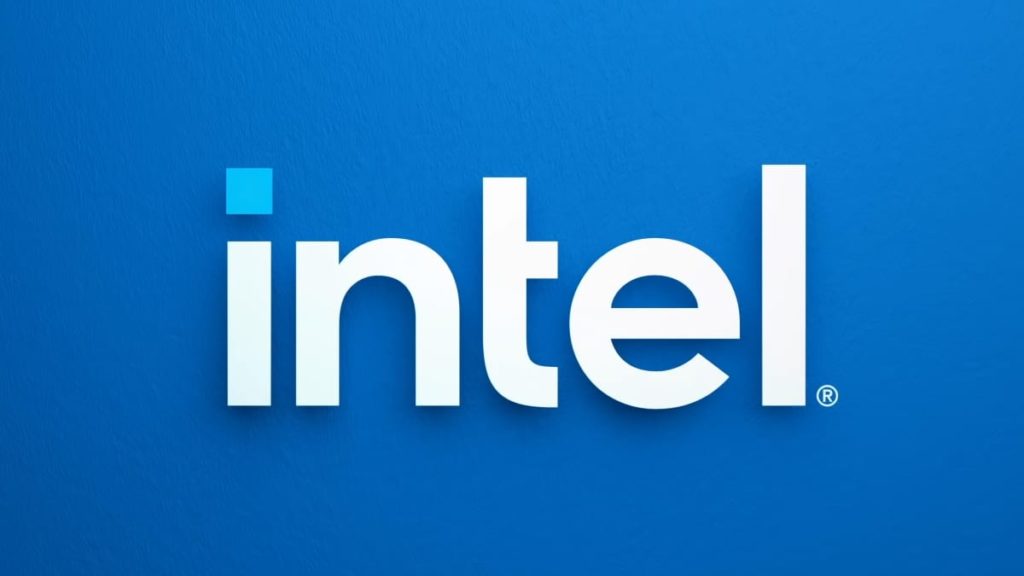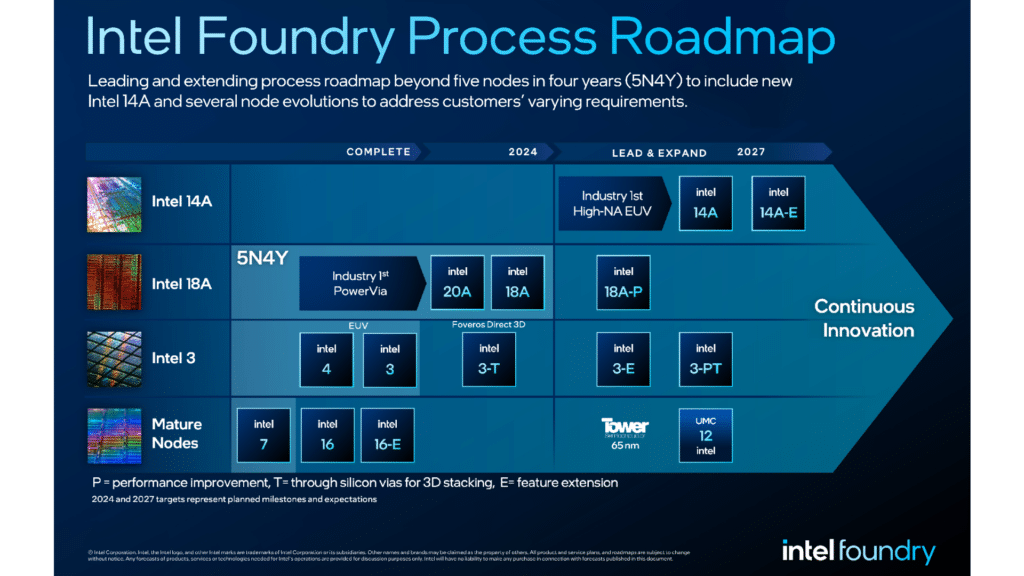Microsoft is planning to produce one of its in-house chips on Intel’s 18A process, according to a press release that Intel shared yesterday regarding the launch of Intel Foundry (“the world’s first systems foundry for the AI era”) and Intel 14A, a new process technology that, according to an updated roadmap, will arrive by 2027. The product wasn’t specified, but Microsoft revealed two home-grown chips last year, both of which were built on TSMC’s 5-nanometer process.
Microsoft’s home-grown chips include:
Satya Nadella, Microsoft Chairman and CEO, said:
- “We are in the midst of a very exciting platform shift that will fundamentally transform productivity for every individual organization and the entire industry.”
- “To achieve this vision, we need a reliable supply of the most advanced, high-performance and high-quality semiconductors.”
- “That’s why we are so excited to work with Intel Foundry, and why we have chosen a chip design that we plan to produce on Intel 18A process.”
Intel’s new roadmap:
Intel on the new roadmap, and when it expects to regain process leadership:
Intel’s extended process technology roadmap adds Intel 14A to the company’s leading-edge node plan, in addition to several specialized node evolutions. Intel also affirmed that its ambitious five-nodes-in-four-years (5N4Y) process roadmap remains on track and will deliver the industry’s first backside power solution. Company leaders expect Intel will regain process leadership with Intel 18A in 2025.
The new roadmap includes evolutions for Intel 3, Intel 18A and Intel 14A process technologies. It includes Intel 3-T, which is optimized with through-silicon vias for 3D advanced packaging designs and will soon reach manufacturing readiness. Also highlighted are mature process nodes, including new 12 nanometer nodes expected through the joint development with UMC announced last month. These evolutions are designed to enable customers to develop and deliver products tailored to their specific needs. Intel Foundry plans a new node every two years and node evolutions along the way, giving customers a path to continuously evolve their offerings on Intel’s leading process technology.
Intel also announced the addition of Intel Foundry FCBGA 2D+ to its comprehensive suite of ASAT offerings, which already include FCBGA 2D, EMIB, Foveros and Foveros Direct.



